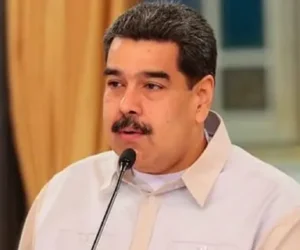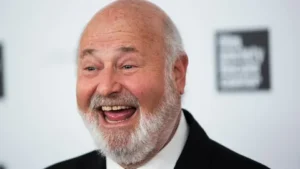IMPORTANT NOTE (November 14, 2025): False reports circulated today claiming Willie Obiano had died in London. His aides, including former Commissioner for Information C-Don Adinuba, have officially confirmed that Obiano is alive and well, currently residing in Houston, Texas, USA. This biography focuses on verified facts about his life and career.
Look, when you talk about Willie Obiano, you’re talking about one of the most controversial figures in recent Nigerian political history. This is a man who went from banking boardrooms to the Anambra State Government House, won all 21 local governments in a re-election landslide, then got arrested by EFCC literally hours after losing his immunity. That’s not just a political career – that’s a Netflix series waiting to happen.
I’m going to walk you through the complete story of Willie Maduaburochukwu Obiano – from his childhood in Aguleri during the Biafran War, through his impressive banking career, his surprise entry into politics under Peter Obi’s mentorship, his eight years as governor, and the corruption allegations that followed him the moment he left office. This is the unvarnished truth about a man whose legacy remains deeply contested.
The Aguleri Boy Born Into War
Willie Maduaburochukwu Obiano (also spelled Mmadụabụrochukwu) was born on August 8, 1955, in Aguleri, a rural community in what is now Anambra East Local Government Area of Anambra State. His parents, Philip and Christiana Obiano, were devout Catholics, and his father served as both a catechist and teacher, teaching in schools across Igboland.
Here’s the context that shaped young Willie: he was just 11 years old when Nigeria’s first military coup happened in 1966. He witnessed the pogrom against Igbos in Northern Nigeria. He was 12 when Lt. Col. Emeka Ojukwu declared the Independent State of Biafra in May 1967, plunging the region into a devastating three-year civil war.
Growing up during the Biafran War (1967-1970) profoundly impacts a child. Food scarcity, constant fear, displacement, loss – this was Willie Obiano’s childhood. The fact that he later became one of Anambra’s most powerful political figures shows extraordinary resilience and ambition forged in those difficult early years.
But here’s what the official biographies always mention: “Young Willie Maduaburochukwu Obiano showed great promise in his early education.” Translation: despite the war and upheaval, this kid was academically brilliant and determined to succeed.
The Education Foundation: University of Lagos
After completing his secondary education, Obiano gained admission to the University of Lagos (UNILAG), one of Nigeria’s most prestigious universities. He graduated in 1979 with a Bachelor of Science degree in Accountancy.
Think about the timing. 1979 was the year Nigeria returned to civilian rule after 13 years of military government. The country was experiencing an oil boom. Opportunities were opening up for educated young Nigerians, especially in the banking and oil sectors. Obiano graduated into this optimistic period with a valuable qualification – accountancy.
He didn’t stop there. He returned to UNILAG and completed a Master of Business Administration (MBA) degree, further solidifying his credentials for a career in corporate Nigeria.
The Banking Career: Three Decades of Corporate Excellence
This is the part of Willie Obiano biography that often gets overlooked because people focus on his political years. But understanding his banking career is crucial to understanding how he governed – and how he allegedly mismanaged public funds.
First Bank of Nigeria (1981-1985):
Obiano began his banking career in 1981 at First Bank of Nigeria, one of the country’s oldest and most respected financial institutions. This gave him solid foundation in banking operations, customer relations, and financial management.
Chevron Oil Nigeria Plc (1985-1991):
He left banking for the oil sector, joining Chevron as an accountant. This wasn’t a lateral move – it was strategic. The oil industry paid better and offered international exposure.
At Chevron, he rose to the position of Chief Internal Auditor. This is significant because internal auditors are trusted with examining financial records, identifying irregularities, and ensuring compliance. Obiano was responsible for the integrity of Chevron’s financial operations in Nigeria.
In 1989, he was selected as one of the auditors who audited Texaco Refinery in Rotterdam, Netherlands. This international assignment demonstrated that he was considered technically competent and trustworthy enough for high-stakes international audits.
Fidelity Bank Nigeria (1991-2013):
In 1991, Obiano made his most significant career move, joining Fidelity Bank as Deputy Manager and head of the Audit unit. This is where his career really took off and where his relationship with Peter Obi deepened.
Fidelity Bank wasn’t a major player when Obiano joined, but it was growing. He rose through the ranks methodically:
- Deputy Manager and Head of Audit (1991)
- Various management positions (1991-2003)
- Executive Director (October 2003-2013)
By 2003, Willie Obiano was an Executive Director at a respectable Nigerian bank. He’d spent 22 years in banking, 12 years at Fidelity Bank. He was financially comfortable, respected in banking circles, and approaching retirement age.
Then Peter Obi called.
The Peter Obi Connection: Entry Into Politics
Here’s the relationship that changed everything. Peter Obi, who became Anambra Governor in 2006 (after a lengthy legal battle), had worked with Obiano at Fidelity Bank. They knew each other professionally and Peter Obi had witnessed Obiano’s financial expertise firsthand.
In 2010, Governor Peter Obi brought Obiano into government as Special Adviser on Financial Matters. This wasn’t a ceremonial appointment – Obi tasked him with serious responsibilities: reducing Anambra State’s debt profile and improving fiscal management.
The Track Record (2010-2013):
Under Obiano’s watch as financial adviser:
- Anambra State’s debt reduced from over ₦34 billion to ₦9 billion
- Financial stability improved through disciplined spending
- Revenue generation increased through better tax collection
- Anambra State Internal Revenue Service (AIRS) established
This wasn’t just good governance – this was exactly the kind of fiscal responsibility that made Peter Obi legendary. Obiano was integral to implementing Obi’s financial reforms.
From 2011 to 2013, Obiano also served as Chairman of the Anambra State Investment Promotion and Protection Agency (ANSIPPA), working to attract investors and create a favorable business climate. He was involved in establishing the Anambra State Small Business Agency (ASBA) to support SMEs.
By 2013, Willie Obiano had proven himself as a competent financial manager and administrator. When Peter Obi’s tenure was ending, the question became: who would continue his legacy?
Peter Obi’s answer: Willie Obiano.
The 2013 Gubernatorial Election: An Unexpected Victory
On November 16, 17, and 30, 2013, Anambra State held gubernatorial elections. Willie Obiano, relatively unknown outside government and banking circles, contested on the platform of the All Progressives Grand Alliance (APGA) – Peter Obi’s party.
The election was competitive. Obiano faced established politicians with deeper political roots and larger war chests. But he had three critical advantages:
- Peter Obi’s endorsement and support
- A track record of reducing state debt
- APGA’s popularity in Anambra State
Obiano won. He was sworn in on March 17, 2014, as the fourth democratically-elected Governor of Anambra State, succeeding Peter Obi.
The narrative was perfect: a successful banker and technocrat, chosen by the beloved Peter Obi, coming to continue good governance and fiscal discipline. Expectations were high.
The First Term (2014-2018): Building a Legacy
Obiano came into office with a clear vision. He developed what he called the “Anambra Integrated Development Strategy (ANIDS)” built around four pillars:
- Agriculture
- Industrialization
- Trade and Commerce
- Oil and Gas
He branded this the “Anambra Wheel of Development” – a comprehensive economic blueprint for the state.
Notable First Term Achievements:
Security: Anambra was rated one of the safest states in Nigeria during his tenure. He established “Operation Kpochapu” (a security initiative) that significantly reduced crime including kidnapping and armed robbery.
Infrastructure: Roads constructed and rehabilitated across the state, including the Amansea-Aguluzigbo-Nkpor road and sections of Onitsha-Enugwu-Ukwu road.
Agriculture: Established Anambra State Agricultural Development Corporation, promoted farming initiatives, distributed seedlings and agricultural inputs to farmers.
Investment: Attracted some investors including Changhong-Ruba, a Chinese manufacturing company that established operations in the state.
Education: Renovated schools, improved teacher welfare, increased education budget allocation.
Health: Improved healthcare facilities, launched health insurance scheme.
But here’s where criticism began: Obiano was increasingly seen as more flamboyant and less financially disciplined than Peter Obi. While Obi was known for flying economy class and staying in budget hotels, Obiano’s lifestyle appeared more lavish. Questions about spending began emerging.
The Historic 2017 Re-Election: 21 Out of 21
On November 18, 2017, Willie Obiano achieved something extraordinary in Nigerian electoral history: he won all 21 local governments in Anambra State. Not 20 out of 21. Not a narrow victory in contested areas. ALL 21 local governments.
The Final Results:
- Willie Obiano (APGA): 234,071 votes
- Tony Nwoye (APC): 98,752 votes
- Oseloka Obaze (PDP): 70,293 votes
This wasn’t just a victory – it was a landslide that swept aside all opposition. No governor in Anambra State history (or arguably any Nigerian state) had achieved such a complete electoral dominance.
His supporters pointed to this as validation of his performance. Critics suggested it indicated excessive use of state resources for electoral purposes. The truth, as usual, was probably somewhere in between.
The Second Term (2018-2022): Deteriorating Relationships
If the first term was about building, the second term was about controversy, conflict, and mounting allegations.
The Peter Obi Fallout:
The relationship between Obiano and his political godfather Peter Obi deteriorated dramatically. The two men who had worked together at Fidelity Bank and in government became bitter rivals.
The most dramatic public display came during Charles Soludo’s inauguration ceremony in March 2022. In a shocking moment captured on video, Obiano’s wife, Ebelechukwu, confronted Peter Obi’s wife, Margaret, leading to a physical altercation that required security intervention.
The incident became instant viral content and symbolized the complete breakdown of the Obiano-Obi relationship. What caused the rift? Theories include:
- Political differences and succession planning
- Obiano’s perceived deviation from Obi’s fiscal discipline
- Competition over who deserves credit for APGA’s success
- Personal slights and accumulated grievances
Mounting Financial Questions:
By his second term, questions about Obiano’s financial management were no longer whispers. They were public controversies.
In November 2021, the Peoples Gazette published exclusive bank documents showing that on March 29, 2017, Obiano had withdrawn over ₦4 billion from multiple Anambra security vote allocation accounts with no stated explanation or documentation of how the funds were spent.
Security votes are controversial in Nigerian governance – they’re allocations ostensibly for security purposes but with minimal accountability requirements. Critics call them “governor’s slush funds.” The ₦4 billion withdrawal raised serious red flags.
Obiano’s Commissioner for Information, Don Adinuba, dismissed the documents as not genuine and the figures as “extremely ridiculous.” But the damage was done. Public perception was shifting.
The EFCC Watchlist: Writing on the Wall
In late November 2021, just after Charles Soludo won the gubernatorial election to succeed Obiano, the Economic and Financial Crimes Commission (EFCC) took an unusual step: they publicly placed Obiano on a watchlist.
This meant the EFCC wanted to be notified if Obiano attempted to leave Nigeria. It was a clear signal: they were investigating him and didn’t want him fleeing before his immunity expired.
Obiano’s government reacted angrily. Commissioner Adinuba stated that the EFCC had gone to a “new low” by releasing the letter publicly. He claimed everyone knew Obiano was planning to move to his residence in the United States after leaving office, implying the watchlist was political persecution.
The timing was significant. Obiano’s eight-year tenure would end on March 17, 2022. At that moment, he would lose the gubernatorial immunity that protected him from prosecution. The EFCC was making clear they would be waiting.
The Airport Arrest: Hours After Leaving Office
March 17, 2022, was supposed to be Willie Obiano’s liberation day. After eight years as governor, he would hand over to his successor and finally be free of the intense pressures of office.
Instead, it became the day everything fell apart.
Hours after Obiano left office – literally hours after losing his immunity – EFCC operatives arrested him at Murtala Muhammed International Airport in Lagos as he attempted to board a flight, presumably to the United States.
The timing wasn’t coincidental. The EFCC had waited for his immunity to expire and moved immediately. EFCC spokesperson Wilson Uwajaren confirmed the arrest was connected to the watchlist and stated Obiano was attempting to flee the country.
The EFCC later clarified the reason for detention: Obiano needed to account for public funds amounting to ₦42 billion meant for security votes and Federal Government-funded Subsidy Reinvestment Programme (SURE-P).
Read that number again. Forty-two billion naira. Not four billion – forty-two billion.
The Allegations:
- Misappropriation of security vote allocations
- Diversion of SURE-P funds meant for infrastructure and social programs
- Unexplained withdrawals from state accounts
- Lack of documentation for massive expenditures
Obiano was detained, questioned, and eventually released on bail. The case has been ongoing, with Obiano denying all allegations of corruption and insisting his administration followed proper procedures.
The Personal Life: Family and Relationships
Marriage:
Willie Obiano is married to Ebelechukwu Obiano (born Ebele Virginia Obianodo). Their relationship has been both a political asset and liability.
Ebele was active during his governorship, involved in various social programs and women’s empowerment initiatives. But she also attracted controversy for her lifestyle and the infamous physical altercation with Margaret Obi at Soludo’s inauguration.
Children:
The Obianos have children, though specific details about their family are kept relatively private compared to some political families.
Faith:
Both Willie and Ebele are practicing Catholics, continuing the religious tradition of Willie’s parents.
Current Status (November 2025):
According to his aides, Obiano currently resides in Houston, Texas, USA. Despite false death rumors circulating on November 14, 2025, his former Commissioner for Information C-Don Adinuba confirmed that Obiano is alive, well, and living with his family in Houston.
The move to the United States after his governorship – the very thing the EFCC watchlist was designed to prevent – eventually happened after his bail conditions allowed international travel.
The Legacy Question: What Did Obiano Actually Achieve?
This is where Willie Obiano biography becomes genuinely contested. His supporters and critics tell completely different stories.
Supporters’ View:
- Maintained Anambra as one of Nigeria’s safest states
- Attracted some foreign investment
- Improved infrastructure in various local governments
- Won historic 21-out-of-21 re-election showing popular support
- Continued APGA’s dominance in Anambra
- Implemented comprehensive development strategy
Critics’ View:
- Failed to match Peter Obi’s fiscal discipline
- Allegedly misappropriated billions in public funds
- Lived lavishly while state workers sometimes went unpaid
- Deteriorated infrastructure compared to Obi’s achievements
- Left Anambra with increased debt despite inheriting reduced debt
- Arrested for corruption immediately after leaving office
The Measurable Reality:
Anambra’s debt profile, which Obiano had helped reduce to ₦9 billion under Peter Obi, reportedly increased during his tenure. The state he left to Soludo in 2022 faced financial challenges despite eight years of federal allocations and internally generated revenue.
Infrastructure projects were completed, but many remained unfinished or poorly executed. The security situation remained relatively stable, which is genuinely noteworthy in Nigeria’s volatile southeast region.
The ₦42 billion in allegations from EFCC suggests financial mismanagement at minimum, corruption at worst. Until legal proceedings conclude, definitive judgment remains premature, but the airport arrest hours after losing immunity created lasting damage to his reputation.
The Bottom Line: A Career Defined by Contradictions
Willie Obiano biography is ultimately a story about the seductive nature of power and how quickly reputations can be destroyed. This was a man who:
- Spent three decades building respect in banking and corporate Nigeria
- Served competently as financial adviser, reducing state debt significantly
- Won two gubernatorial elections, the second by historic margins
- Governed for eight years with some genuine achievements
- Was arrested for corruption literally hours after leaving office
From respected banker to celebrated governor to accused criminal – all within 15 years. That trajectory tells you something about Nigerian politics and perhaps something about Willie Obiano specifically.
At 70 years old (turning 70 in August 2025), Obiano’s legacy remains contested and incomplete. If corruption charges are proven, he’ll be remembered as another governor who looted state funds. If he’s exonerated, he might rehabilitate his reputation as a competent administrator victimized by political persecution.
For now, he lives in Houston, far from Anambra State, far from the Government House, and far from the airports where EFCC agents once waited to arrest him. Whether that’s a peaceful retirement or exile depends entirely on your perspective.








